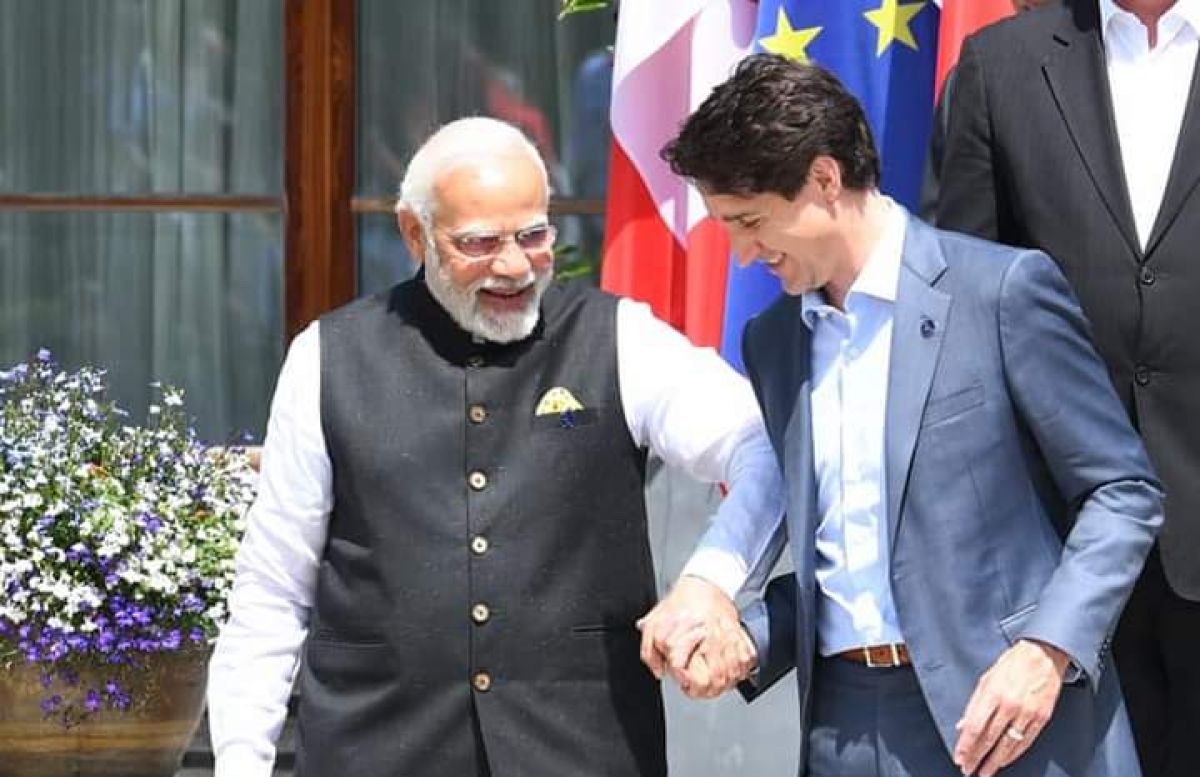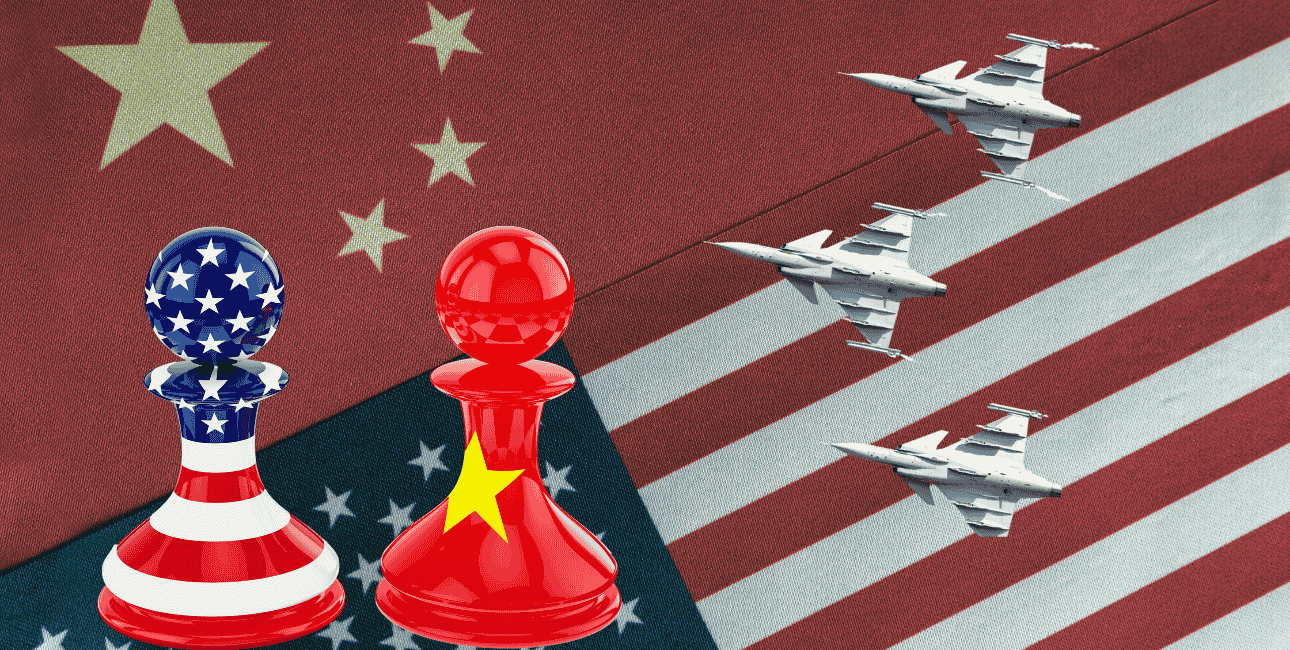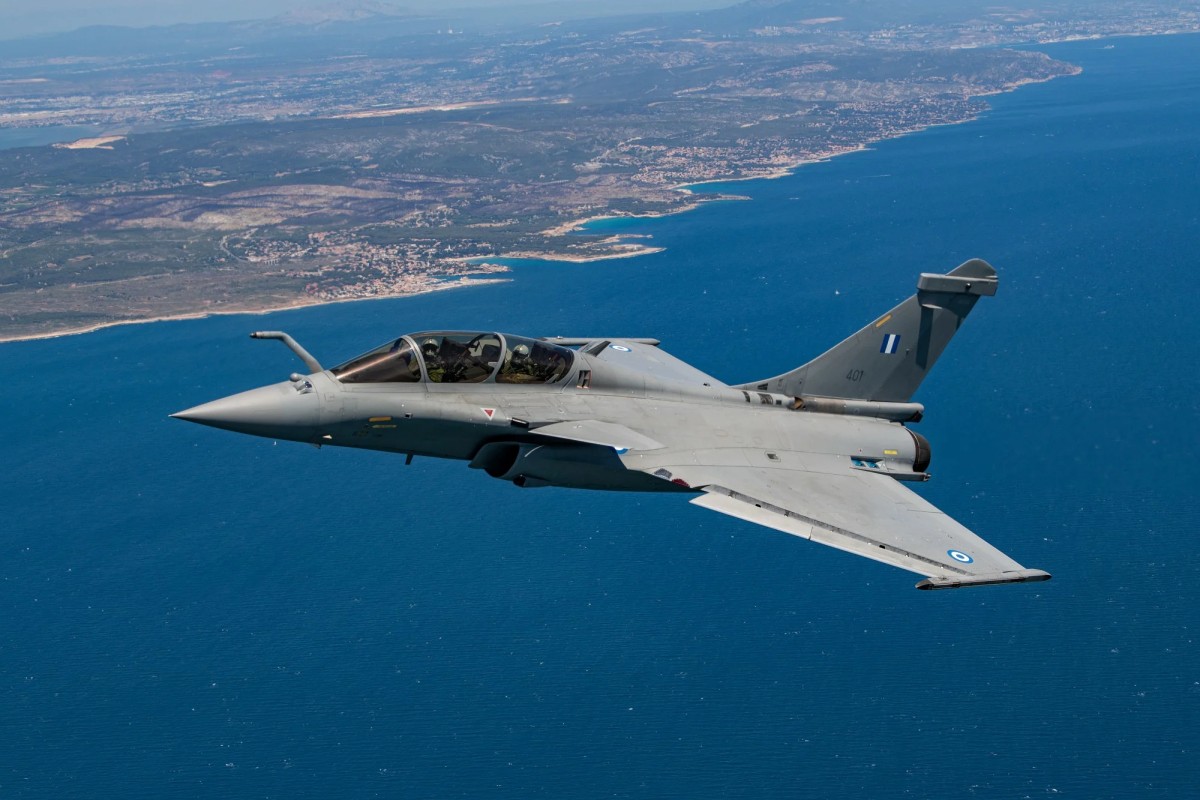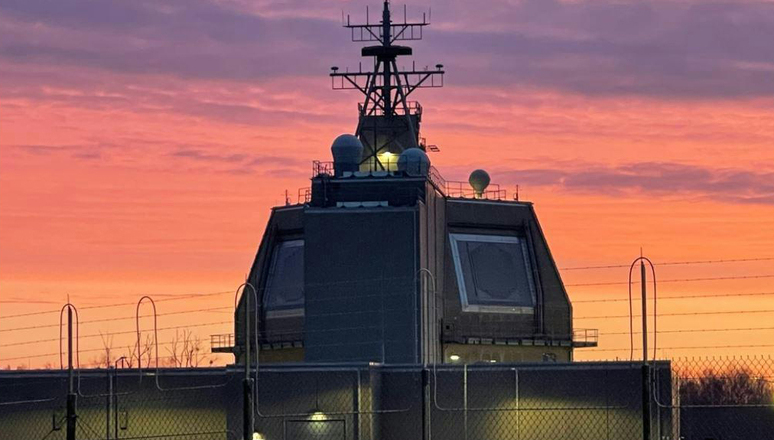In what must be one of the rarest of rare events, a Prime Minister, who happens to be the Head of a Government, holds a press conference to declare as many as six diplomats, including the Ambassador (High Commissioner) of a friendly foreign country, persona non grata.
But that is exactly what Canadian Prime Minister Justin Trudeau did on October 14 when he accused six Indian diplomats of being “persons of interest” in the murder last year of a Khalistani terrorist Hardeep Singh Nijjar, who had become a Canadian citizen through foul means. And, his foreign minister Mélanie Joly, in the same press conference, declared “expulsion” of these six diplomats.
Predictably, India has reciprocated by expelling six senior Canadian diplomats posted in India, including the Acting High Commissioner. Now, there appears to be a near-total breach in relations between two countries that are supposed to be friends and, on some issues, even allies. This, too, is simply unprecedented.
That was not all. In this press conference that lasted 45 minutes, Trudeau and his two cabinet colleagues seemed to be attempting a communal divide within the Indian Diaspora, which is pretty large in Canada, by openly talking about their commitment to protect only the Sikhs and their interests. They acted as if non-Sikhs of Indian origin did not matter.
Incidentally, this seemingly unprecedented act on the part of Trudeau came amid reports in Canada’s leading daily newspaper, The Globe and Mail, that many ruling Liberal party MPs are gathering signatures requesting Trudeau, who heads a minority government, “to step down for the good of the party.”
It may be noted that Trudeau is now trying to form a new campaign team after Liberal campaign director Jeremy Broadhurst quit his post a month ago, asking the Prime Minister to resign. Under Trudeau’s leadership, the Liberals lost recent by-polls in what were hitherto the party’s strongholds.
According to Nanos Research polling, the Liberals are now tied for second place with the NDP (New Democratic Party), with the Conservatives ahead by 20 points. Most polls over the past year have shown the Liberals significantly trailing the Tories.
Besides, the NDP has ended its formal support to the Trudeau government, providing only issue-based support from time to time.
One understands that Trudeau’s minority government is critically dependent on the support of the NDP, which is led by Jagmeet Singh Dhaliwal. Dhaliwal is a known Khalistan supporter whose visa was denied by the Indian government in 2013.
Jagmeet Singh, who is a Sikh, has spent much of his early political career as an MP in Ontario, lobbying the province to recognize India’s 1984 anti-Sikh riots as an act of genocide.
Trudeau’s Liberal party has 13 seats less than the majority in the country’s parliament. The New Democratic Party is also ruling British Columbia, the province with the highest percentage of Sikh population in Canada, and is the major opposition party in Alberta, Ontario, Manitoba, and Saskatchewan, the provinces with prominent Sikh populations.
But then, it is under peculiar electoral laws (“pay to play” nomination system) that have helped the Sikhs in Canada reap electoral results disproportionate to their number.
Under these laws, a candidate has to bring in a large number of letters from actual voters to be nominated. This is something the closely-knit Sikhs do well in managing, unlike other minorities, who have greater numbers than the Sikhs in the constituency. The NDP has, therefore, done well in recent elections (it won 24 in the 2019 general elections).
Be that as it may, when one talks of the Indian Diaspora in Canada, Sikhs are undoubtedly the largest among them. Canada has the largest Sikh population outside of India, with about 800,000 people, or about 2.1 percent of the country’s population.
But when one talks of people of Indian origin overall in Canada, Sikhs are still less in number if other people of Indian origin are taken into account. The approximate population of Indian Canadians is said to be around 1.9 million, of which Sikhs are 0.8 million.
Besides, not all Canadian Sikhs are Khalistan supporters. For most in the Sikh Diaspora in Canada, Khalistan is not a “hot” issue. Terry Milewski, who has authored a book titled “Blood for Blood: Fifty Years of the Global Khalistan Project (2021),” says that support for Khalistan has dwindled within the diaspora over the years.
“There is a small minority that is clinging to the past, and that small minority remains significant not because of popular support but rather because they are trying to keep up their political influence with various political parties both from the left and the right. They can rally supporters en masse who will vote for the politicians who can sing their song,” Milewski points out.

Baljit Nagra, an associate professor of criminology specializing in race relations at the University of Ottawa, shares Milewski’s view. She says that only a small portion of the community supports Khalistan.
It is against this background that Trudeau’s critics say that the Prime Minister is not thinking over the long-term political dividends to him by viewing the Indian Diaspora in Canada as a whole but through a select group of Sikhs.
Naturally, India is concerned. As Indian External Affairs Minister S. Jaishankar pointed out recently, violent acts by Sikh separatists have been “normalized in Canada in the name of freedom of speech” by the Trudeau government. “We don’t think freedom of speech extends to incitement of violence; that’s a misuse of freedom; it’s not a defense of freedom,” he said.
According to Neilesh Bose, an associate professor of history at the University of Victoria — India, takes issue with the violent symbolism sometimes displayed by those in the separatist movement. For example, India’s foreign minister criticized Canada over a float in a June parade in Brampton, Ont., that portrayed the 1984 assassination of Prime Minister Indira Gandhi by her two Sikh bodyguards.
Canada under Trudeau has allowed the pro-Khalistan organization Sikhs for Justice (SFJ), which India has designated a terrorist group, to hold multiple unofficial referendums in Canada. This group has vandalized Hindu temples and threatened not only the Indian diplomats posted in Canada but also Canada’s Hindu politicians and legislators.
Not long ago, Chandra Arya, a Member of Parliament from Nepean in the House of Commons, had revealed in a post on his X account that separatist Gurpatwant Singh Pannun of Sikhs for Justice released a video demanding that Arya and his Hindu-Canadian friends go back to India after he (Arya) condemned the vandalism of the Hindu temple and other acts of hate and violence by Khalistan supporters in Canada.
“We Hindus have come to our wonderful country, Canada, from all parts of the world. From every country in South Asia, many countries in Africa and the Caribbean, and many other parts of the world, we have come here, and Canada is our land,” Arya wrote.
“We have made and continue to make immense positive and productive contributions to the socio-economic development of Canada. With our long history of Hindu culture and heritage, we have enriched the multicultural fabric of Canada,” he said, adding “Our land is being polluted by Khalistani extremists abusing our freedoms guaranteed by our Canadian Charter of Rights”.
Incidentally, Arya is a member of Canadian Prime Minister Justin Trudeau’s Liberal Party.
Aditya Jha, a leading Canadian and global entrepreneur who is a privileged Member of the Order of Canada (the highest civilian honor of the country), told the EurAsian Times that he is pained to the core of his heart to present the following:
1. Before Mr. Harjeet Sajjan, the Canadian minister and the current band of anti-India alleged Khalistan supporting Liberal party ministers and NDP leader Jagmeet Singh, there have been in the Canadian past Sikh federal ministers, BC Premier, provincial ministers, and numerous MPs and MPPs. They didn’t have problems with other Indo-Canadians, and they were not refused meetings with top Indian politicians, including the Chief Minister of Punjab, or snubbed by the Indian Prime Minister. Simple reason: those were Canada-focused politicians and not supporters of violent Khalistanis, anti-Hindu, and violent supporters of the dismemberment of India;

2. Dig a bit deeper into the past and present activities of many leaders of Khalistani proponents in Canada (including Hardeep Nijjar) and their history and their alleged ongoing indulgence in arms trade, money laundering, drug trafficking, and gang war and how they arrived in Canada and their Canadian citizenship is alleged to have been managed/bought;
3. Of course, there should be a serious investigation of the killing of Mr. Hardeep Nijjar, and the rule of Canadian law should be followed vigorously. But don’t carry out this investigation like that of the drowning of Air India, killing 329 Canadians. Present the facts openly to the people and start the persecution of the killers of Mr. Nijjar and Mr. Ripu Daman Singh Malik;
4. Don’t forget how America and the West, including Canada, supported the UN Charter justifying killing in the territory of foreign land under the “Unwilling and Unable” act of terrorists like Osama Bin Laden and other global terrorists. How should India deal with the hypocritical response of Canada under freedom of expression facade while India has been sending dossier after dossier about declared terrorists and their criminal/terrorist activities using Canadian soil against dismemberment and violent acts in India and against Canadian Hindus (publically asking Hindus to leave Canada) and by fomenting Hindu-phobia;
5. Does Mr. Trudeau, Mr. Jagmeet Singh, and the likes of Mr. Harjeet Sajjan have the guts to say anything about the public posters across Canada by violent Khalistanis with photos of the Indian High Commissioner and Consul General announcing to kill them? A public float celebrating the killing of the former Indian Prime Minister was cheered in the streets of Toronto and Vancouver;

6. Mr. Trudeau is considered lightweight geopolitically and has been repeatedly snubbed by the US, UK, China, Saudi, India, and several world leaders. The present fracas between India and Canada would have been handled through mature, silent diplomacy and by putting pressure on the US and other partners of Canada. Instead, Mr. Trudeau took a cheap, politically beneficial route and went public to embarrass India only based on allegations and emboldened his extremist constituency in Canada. His juvenile diplomacy would result in billions of dollars loss both for Canada and India and Canada is not going to be welcome at the table to contain the global threat of China.
When one talks of geopolitics by annoying India, Trudeau is harming indeed his government’s “Indo-Pacific Strategy,” which recognizes India’s growing strategic, economic, and demographic significance in the Indo-Pacific and talks of making India a critical partner of Canada.
“India’s strategic importance and leadership—both across the region and globally—will only increase as India—the world’s biggest democracy—becomes the most populous country in the world and continues to grow its economy. Canada will seek new opportunities to partner and engage in dialogue in areas of common interest and values, including security”, Canada’s “Indo-Pacific Strategy says.
However, the latest episode of diplomat expulsions makes it obvious that this strategy’s potential will remain unfulfilled until and unless Trudeau changes his political course.
- Author and veteran journalist Prakash Nanda is Chairman of the Editorial Board of the EurAsian Times and has been commenting on politics, foreign policy, and strategic affairs for nearly three decades. He is a former National Fellow of the Indian Council for Historical Research and a recipient of the Seoul Peace Prize Scholarship.
- VIEWS PERSONAL OF THE AUTHOR
- CONTACT: prakash.nanda (at) hotmail.com
- Follow EurAsian Times on Google News




